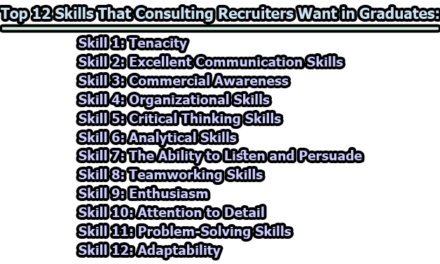Employer branding has gained significant importance in recent years, primarily due to the changing dynamics of the job market and the increasing emphasis on talent management. With the advent of social media and online job platforms, potential employees have greater access to information about companies, their cultures, and work environments. In the rest of this article, we will explore the scope, significance, and characteristics of effective employer branding.
Scope of Effective Employer Branding:
The scope of employer branding is vast and encompasses various aspects of an organization’s reputation as an employer. Here are the key elements within its scope:
1. Attracting Talent: One of the primary objectives of employer branding is to attract top talent to an organization. In today’s highly competitive job market, talented individuals have numerous options when it comes to choosing where they want to work. A strong employer brand acts as a magnet, drawing the attention of high-potential candidates who are not just seeking a job but a meaningful and fulfilling career. When an organization has a positive reputation as an employer, it becomes the preferred choice for skilled professionals. This, in turn, reduces the time and resources spent on recruitment because more qualified candidates proactively seek out the organization.
Moreover, a well-established employer brand communicates what sets the organization apart from the competition. It highlights the company’s unique selling points, such as its culture, values, career development opportunities, and work environment. This not only attracts talent but also ensures that the individuals who apply are more likely to be a good fit for the organization, reducing the chances of a mismatch between job seekers and the company.
2. Employee Retention: Employer branding goes beyond attracting talent; it is equally crucial for retaining existing employees. Organizations invest significantly in hiring and training employees, and when these employees leave, it results in a loss of knowledge, experience, and resources. A positive employer brand can significantly reduce turnover rates.
When employees are proud of where they work, believe in the organization’s mission, and are satisfied with their work environment, they are less likely to leave for opportunities elsewhere. A strong employer brand fosters a sense of loyalty and commitment among employees. They feel a connection to the organization, making them more inclined to stay and contribute to the company’s growth and success. In addition, a positive employer brand can motivate employees to be advocates for the organization, actively promoting it to potential candidates, which can further enhance recruitment and reduce attrition.
3. Employee Engagement: Employee engagement is a critical factor in an organization’s success. Engaged employees are more committed, productive, and innovative. They are willing to go the extra mile to achieve their goals and contribute to the organization’s mission. An effective employer brand plays a vital role in boosting employee engagement.
A positive employer brand creates a sense of belonging and purpose among employees. When individuals feel aligned with the organization’s values and culture, they are more likely to be emotionally invested in their work. They understand their role in the company’s success and are motivated to perform at their best. This increased engagement has a direct impact on productivity, as engaged employees are more focused and creative in their approach to problem-solving. They also tend to have better relationships with colleagues and are more likely to provide exceptional customer service.
4. Cultural Alignment: Maintaining a cohesive organizational culture is crucial for teamwork, productivity, and overall well-being in the workplace. When new employees join an organization, it is vital that they align with the organization’s culture and values. A strong employer brand helps in achieving this cultural alignment.
Effective employer branding communicates the organization’s culture, values, and expectations to potential candidates. This means that individuals who apply for positions are more likely to be culturally aligned with the company, reducing the risk of cultural mismatches and conflicts within the workplace. Employees who identify with the organization’s culture are more likely to adapt quickly, work harmoniously with their colleagues, and contribute positively to the work environment.
5. Reputation Management: An organization’s reputation is a valuable asset. It influences how it is perceived not only by prospective employees but also by customers, partners, and investors. Employer branding plays a significant role in managing and enhancing the organization’s reputation.
A strong employer brand ensures that the organization is viewed positively as an employer. This positive image has a ripple effect, as employees who are proud of their workplace often become brand advocates, sharing their positive experiences with friends, family, and social networks. As a result, the organization’s reputation is bolstered in the eyes of potential job candidates, customers, and business partners.
Furthermore, a positive employer brand can lead to increased brand loyalty among customers who appreciate an organization’s commitment to its employees. It can also attract socially responsible investors who value organizations with a strong sense of social responsibility, thereby enhancing the organization’s financial standing.
6. Competitive Advantage: In today’s competitive business landscape, organizations must seek every advantage they can to thrive. Employer branding provides a competitive edge. It differentiates an organization from its competitors and makes it more appealing to potential candidates.
When multiple organizations in the same industry offer similar job roles and compensation packages, a strong employer brand can tip the scales in favor of one company over another. Talented candidates are more likely to choose to work for an organization with a positive reputation as an employer because they perceive it as a place where their skills and aspirations can be best realized.
A competitive advantage in attracting talent not only allows an organization to secure top-notch employees but also enables it to have a workforce that is motivated, satisfied, and aligned with its culture and values. This, in turn, contributes to improved business performance.
7. Business Performance: There is a direct correlation between employer branding and business performance. Engaged, satisfied, and motivated employees significantly contribute to the organization’s bottom line. A strong employer brand can lead to higher levels of productivity, better customer service, and increased profitability.
Engaged employees are more likely to go the extra mile, be innovative, and contribute to the organization’s success. They take pride in their work and are enthusiastic about achieving the company’s goals. This heightened commitment and performance translate into positive outcomes for the organization, such as higher quality products or services, increased customer satisfaction, and a competitive edge in the market.
Additionally, a strong employer brand can lead to cost savings. Organizations with a positive reputation as an employer often experience reduced turnover rates, which means they spend less on recruitment and training. These cost savings can directly impact the organization’s financial performance.
Significance of Effective Employer Branding:
Employer branding is of paramount significance for organizations today. Here are some of the key reasons why it is so crucial:
1. Attracting Top Talent: In a competitive job market, attracting the best talent is a significant challenge for organizations. A strong employer brand is a powerful tool for addressing this challenge. It acts as a magnet for high-potential candidates who actively seek out organizations with a strong reputation as employers. When an organization has a positive employer brand, it becomes an attractive destination for individuals looking to advance their careers. They are drawn to organizations with a compelling employer brand that aligns with their aspirations, values, and professional goals.
A positive employer brand not only attracts candidates but also makes the recruitment process more efficient. Since the organization is viewed favorably, it can fill positions more quickly and with a higher quality of applicants. This can significantly reduce the time and resources spent on recruitment, making the hiring process more streamlined and cost-effective.
2. Employee Retention: Employee turnover is costly and disruptive for any organization. When employees leave, it results in the loss of knowledge, experience, and the investment made in their training and development. A positive employer brand plays a vital role in reducing turnover rates.
Employees who are proud to be a part of an organization, who resonate with the company’s culture and values, and who believe in the organization’s mission are less likely to leave for other opportunities. A strong employer brand fosters a sense of loyalty and commitment among employees, making them more inclined to stay with the organization for the long term. When employees have a strong sense of connection with the organization and believe that their work is meaningful, they are more likely to remain, which saves the organization the costs associated with recruitment and onboarding of new employees.
3. Employee Engagement: Employee engagement is a key driver of productivity and overall business success. Engaged employees are more committed to their work, more productive, and more innovative. An effective employer brand contributes significantly to boosting employee engagement.
A strong employer brand creates a sense of belonging and purpose among employees. When employees feel that they are a good fit with the organization’s culture, values, and goals, they are more likely to be emotionally invested in their work. They understand the role they play in the organization’s success, and this understanding motivates them to perform at their best.
Engaged employees are more focused, creative, and committed to achieving their goals. They tend to collaborate effectively with their colleagues and are more likely to provide excellent customer service, enhancing the overall reputation and profitability of the organization.
4. Talent Pipeline: A well-established employer brand ensures a continuous and robust talent pipeline. By maintaining a positive reputation as an employer, organizations attract a steady stream of job applicants who are eager to be part of the organization.
Having a talent pipeline is beneficial for the organization in several ways. First, it reduces the time and effort required to fill open positions. Second, it provides a pool of potential candidates for current and future hiring needs. This proactive approach to recruitment saves time and resources by reducing the need for extensive external searches. Organizations with a strong employer brand can rely on the ongoing interest of potential employees, creating a more efficient hiring process.
5. Cost Savings: Effective employer branding can result in significant cost savings for organizations. A positive employer brand not only attracts top talent more effectively but also reduces the cost of recruitment. Organizations with a strong employer brand often have a higher rate of applicants for their job openings, which means that positions can be filled more quickly and with fewer resources.
Reducing recruitment costs is especially important for organizations with limited budgets or those looking to optimize their human resources allocation. The cost savings can be channeled into other areas of HR, such as employee development and engagement initiatives.
6. Brand Consistency: An employer brand that aligns with the company’s overall brand ensures consistency in messaging. A consistent brand image enhances the organization’s overall brand identity and image. It demonstrates that the organization’s internal culture and external representation are in harmony.
A cohesive brand image can positively influence various stakeholders, including employees, customers, and investors. It conveys that the organization is authentic in its portrayal of values and culture, leading to a stronger brand perception.
7. Cultural Fit: A strong employer brand has the power to attract candidates who resonate with the organization’s culture and values. This results in reduced risks of cultural misalignment and conflicts within the workplace.
Cultural fit is a critical factor in employee satisfaction and performance. When employees align with the organizational culture, they are more likely to collaborate effectively with their colleagues, make meaningful contributions to the workplace, and experience higher job satisfaction. This alignment enhances teamwork and reduces the chances of workplace conflicts, ultimately contributing to a healthier work environment.
8. Competitive Advantage: A strong employer brand provides a competitive advantage in the talent market. In an environment where organizations often compete for the same top talent, a positive employer brand can be a key differentiator.
Organizations with a well-established employer brand are more likely to secure high-caliber employees, ensuring that they have the skills and abilities needed to drive the organization forward. This competitive advantage not only helps attract and retain top talent but also contributes to the organization’s overall success and innovation.
9. Customer and Investor Confidence: A positive employer brand does not only impact employees but also influences customers and investors. It can enhance the overall reputation and credibility of the organization, boosting customer and investor confidence.
Customers are often more likely to support organizations that are known for treating their employees well. They view such organizations as socially responsible and ethical, which can positively influence their purchasing decisions.
Likewise, investors may be more inclined to invest in organizations with a strong employer brand. A positive employer brand suggests that the organization values its employees, which, in turn, can contribute to its financial stability and success. Investors appreciate organizations that prioritize employee satisfaction and well-being, as this often leads to better financial performance.
10. Business Performance: Ultimately, a strong employer brand contributes to improved business performance. Engaged, satisfied, and motivated employees are more likely to be productive, innovative, and committed to the organization’s goals.
The commitment and performance of employees translate into tangible benefits for the organization, such as higher-quality products or services, increased customer satisfaction, and a competitive edge in the market. This, in turn, leads to enhanced business performance and profitability.
Characteristics of Effective Employer Branding:
An effective employer branding strategy exhibits several key characteristics that distinguish it from a mere recruitment campaign. These characteristics ensure the strategy’s long-term success and impact:
1. Authenticity: Authenticity is at the core of an effective employer branding strategy. It involves presenting an accurate and genuine representation of the organization’s culture, values, and work environment. Authenticity is not about projecting a superficially positive image but about being true to what the organization stands for. Authentic employer branding ensures that the promises made to employees and candidates align with the actual experiences they can expect within the organization. It builds trust and credibility, which are essential for long-term success.
2. Consistency: Consistency in messaging is crucial in employer branding. An effective employer brand message should be communicated consistently across all channels and interactions, whether it’s the company’s website, social media, job postings, or in-person interviews. This consistency ensures that the image portrayed to both employees and candidates aligns with the organization’s values and culture. A consistent message helps create a unified and strong brand identity that is recognizable to all stakeholders.
3. Employee-Centric: An effective employer branding strategy places employees at the center. It focuses on understanding and addressing the needs and aspirations of employees. The organization should demonstrate that it cares about its employees and invests in their development and well-being. This employee-centric approach fosters a sense of loyalty and commitment among the workforce. When employees feel valued and see that the organization is dedicated to their growth and satisfaction, they are more likely to become engaged and remain with the company over the long term.
4. Differentiation: A successful employer branding strategy goes beyond showcasing generic qualities and attributes. It distinguishes the organization from its competitors. It highlights what makes the company unique and why it is an attractive place to work. This differentiation can be based on factors such as the organization’s culture, values, opportunities for career advancement, work-life balance, or its commitment to social responsibility. By emphasizing these distinctive features, an employer branding strategy can attract candidates who are specifically looking for what the organization has to offer.
5. Long-Term Perspective: Employer branding is not a one-time effort; it requires a long-term perspective. Building and maintaining a positive employer brand is an ongoing process. The organization should commit to consistently upholding its culture and values and demonstrating its dedication to employees. This long-term perspective ensures that the employer brand remains relevant and impactful, contributing to the organization’s ability to attract and retain top talent over time.
6. Inclusivity: A strong employer brand promotes diversity and inclusivity. It creates an environment where employees from various backgrounds, experiences, and perspectives feel welcome and valued. Inclusivity fosters a sense of belonging and equal opportunity within the organization. An inclusive employer brand demonstrates that the organization is committed to creating a diverse and equitable workplace, which not only attracts diverse talent but also positively impacts the organization’s reputation and business performance.
7. Engagement: Engagement is a fundamental component of effective employer branding. It involves fostering a sense of belonging, purpose, and loyalty among employees. Engagement is not solely about attracting employees but about creating an environment where they feel emotionally connected to the organization. Engaged employees are more committed, productive, and innovative, and they play an active role in driving the organization’s success.
8. Transparent Communication: Transparent communication is essential in employer branding. Open and honest communication with employees and candidates builds trust and credibility. Transparency involves being forthcoming about both the positive and challenging aspects of working within the organization. Transparent communication can help manage expectations and ensure that employees and candidates have a clear understanding of what they can expect from their experience with the organization. It also reinforces the authenticity of the employer brand.
9. Monitoring and Adaptation: An effective employer branding strategy involves continuous monitoring and adaptation. It is essential to collect feedback from employees and candidates to gauge the impact of the employer brand and identify areas for improvement. This feedback-driven approach allows the organization to make necessary adjustments to the employer branding strategy, ensuring that it remains relevant and aligned with the changing needs of the organization and the job market.
10. Employee Testimonials: Sharing authentic employee testimonials and stories is a powerful tool in employer branding. It humanizes the brand and provides a genuine glimpse into the real experiences of working at the organization. Employee testimonials can convey the culture, values, and work environment in a relatable and compelling way. Prospective employees often find these testimonials more convincing and relatable than formal statements and advertisements.
In conclusion, employer branding is a multifaceted and dynamic field with far-reaching implications for organizations. By understanding the scope, significance, and characteristics of effective employer branding, organizations can create a strong reputation as an employer, attracting, retaining, and engaging top talent while reaping the numerous benefits it offers. In a constantly evolving job market, employer branding remains a key strategy for organizations looking to thrive in the competition for talent and achieve long-term success.

Assistant Teacher at Zinzira Pir Mohammad Pilot School and College










